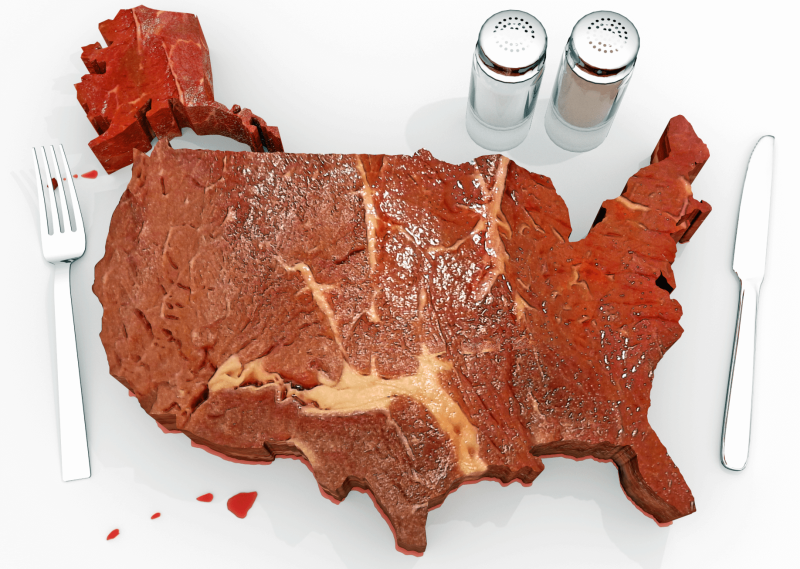The Breakthrough Institute is in the midst of releasing a series of articles on the future of food. The latest article … is one on the future of meat by Marian Swain. After discussing some of the environmental challenges with meat production, Swain is able to see through all the popular prognostications to get to the heart of the problem:
Conversations about mitigating this impact have focused on two strategies: convincing people to eat lower on the food chain and shifting meat production toward more extensive systems. But a growing body of evidence suggests that the former may not prove particularly practical, while the latter may not always bring about better environmental outcomes….
. . . .
Swain documents the trends in consumption of meat products in different parts of the world over time. When thinking about environmental outcomes, however, it is useful to focus on the number of animals rather than just the number of pounds or kilograms consumed. The reason is that environmental impacts are more correlated with numbers of animals than numbers of pounds, and when it comes to animal welfare, animal well-being is experienced one brain at a time.
As the graph below shows, we now have many fewer cows in the U.S. than we once did (for a broader discussion, see this article I wrote for the journal Animal Frontiers).

.
..[I]t is important to recognize science and technology as a path to improve environmental outcomes and animal welfare. As I put in in a Wall Street Journal editorial…:
“…We may be able to reduce our impact on the environment by eating less meat, but we can also do the same by using science to make livestock more productive and environmentally friendly.”
The GLP aggregated and excerpted this blog/article to reflect the diversity of news, opinion and analysis. Read full, original post: The Future of Meat































